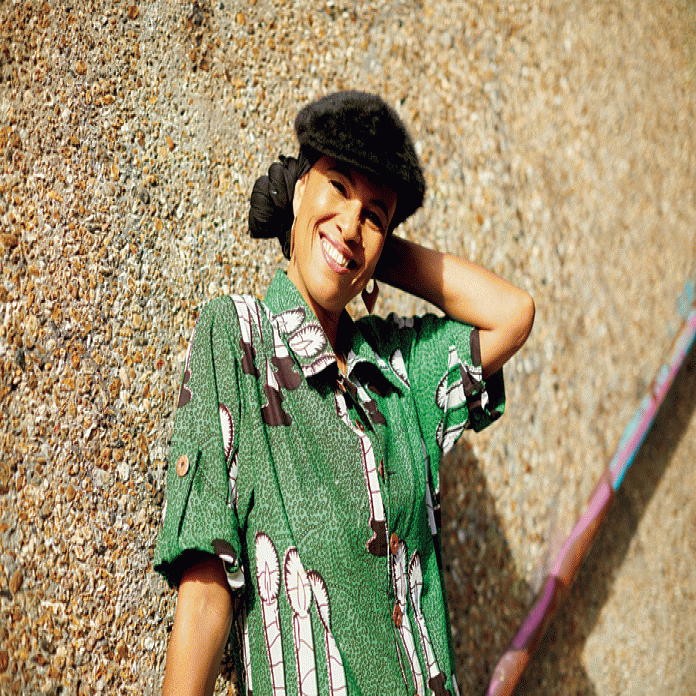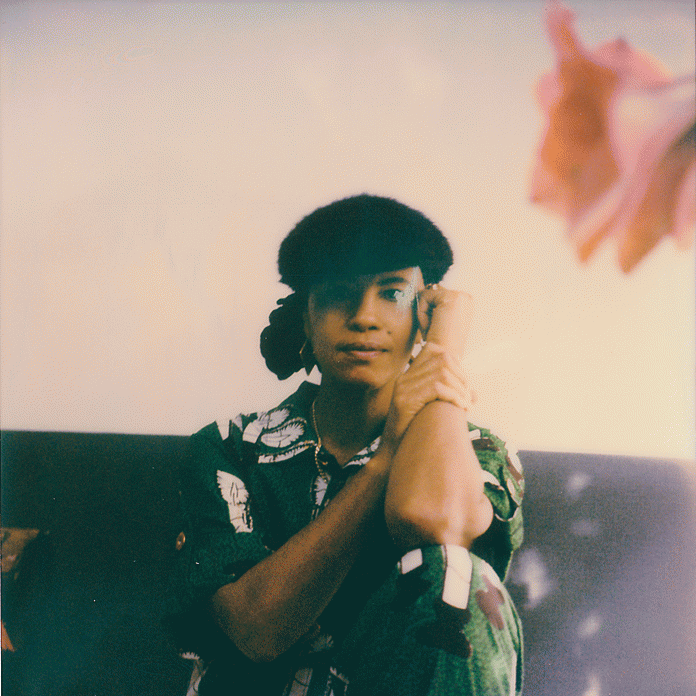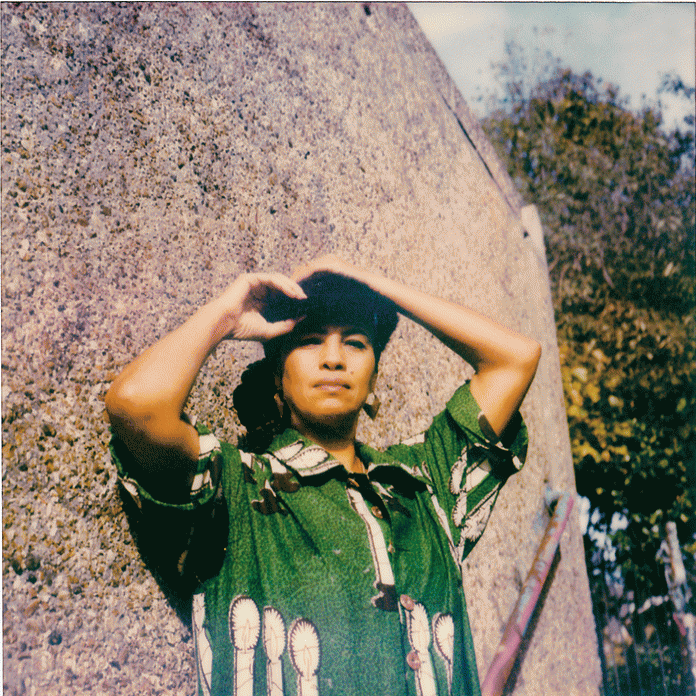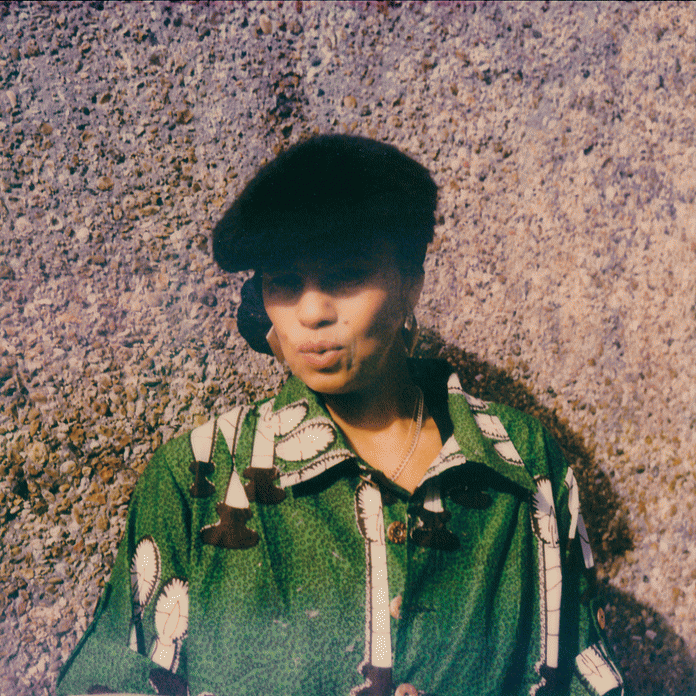
Neneh Cherry on “Broken Politics”
Still Breaking Rules
May 16, 2019
Photography by James Loveday (for Under the Radar)
Neneh Cherry
![]()
Three decades on from a brief brush with international fame; after her 1988 single “Buffalo Stance” became a transatlantic hit, Neneh Cherry lives an understated life. The house we meet in is based in an unglamorous section of west London, nearby the unadorned street that features on the cover of her new album, Broken Politics. Inside, there are few signs of fame, other than a pair of analogue synthesizers that clutter the staircase and a pre-release copy of a then upcoming Beastie Boys memoir. Cherry herself is warm and softly spoken, and disarmingly unaffected; she even offers to make a cup of tea before we talk.
The quiet, and how content Cherry seems with it, goes some way to explaining the clarity on Broken Politics and the unhurried pace of its roll-out; the album was recorded in February 2017 but left to mature until October 2018. While many musicians rile against contentment, Cherry has embraced it. “I felt very conscious that I wanted as little chaos in my life as possible,” she explains, when asked about the album’s delayed unveiling. “I didn’t feel worried that it was going to go out of date.”

That worry was eased by the fact Broken Politics feels like it exists out-of-time, separate from any fashionable movement. Its instrumentals are electronic but have loose organic rhythms, filled with soft textures and plucked melodies that nod to world music traditions. Over the top, Cherry riffs on immigration, gun violence, and her own aging in a tone that is part spoken word, part lullaby. Its improvised feel is her most sophisticated marriage yet of her love of electronic music and her jazz upbringing, at the hand of her stepfather Don Cherry.
But, while Broken Politics is a gentle listen—Cherry describes its writing as a “therapeutic” experience—it isn’t blind to the world it was created in. “The stories to these songs are kind of the fall-out from living in a time where the political climate is pretty mashed-up,” she says. But rather than create a record of protest songs, like her own 1982 “Stop the War” single about the Falklands War, she has responded with an intimate, hopeful record. “The political climate is deeply affecting and it has made me feel really angry and scared at times,” she says. “But I think the antidote was to slow everything down and react with something beautiful.”
Broken Politics was recorded in New York, only a few weeks after the inauguration of President Donald Trump, but Cherry’s focus is generally closer to home. In the UK, the country she moved to when she was 14 after a childhood in Sweden and the USA, and where her music is most associated with, she refers to the on-going political civil war over Brexit and a near-decade of austerity that has left public services in a derelict state.
“I feel like what you see 24/7 is not progressive thinking or politics that’s taking us to a better world,” she says. “It’s like we’re at breaking point.” But she also speaks of a politics that isn’t concerned with governments or institutions. “Maybe there’s also an idea of ‘broken politics’ as what we choose to make of it, our own personal politics, and what it is to be a human being in the world right now. Like, how do you survive? And how do you find a respect for your own importance in the bigger scheme of things?”
The perspective on Broken Politics is a stark contrast to the frantic energy of her last album, 2014’s Blank Project, which mirrored the turbulence of her personal life following the sudden death of her mother in 2009. She remains proud of that album but after a year of touring it, she yearned for a different energy; an energy she found through Kieran Hebden, the British electronic musician known professionally as Four Tet.
Hebden worked on Blank Project but his presence on this album is more conspicuous, feeling like a collaboration of equals rather than an artist-producer relationship. The two first met at the By:Larm festival in Norway and found “a natural meeting place.” Cherry had been a fan of his music for years—she calls him a “genius” at one point—and came from a tradition of jazz that informed her take on electronic music. Hebden was a fan of her stepfather and had pursued a career that attempted to bring the improvised energy of jazz to electronic music. “Because of his knowledge of music, he can reach so deep and far,” she says. “But he does it in a really natural and unpretentious way.”

The way Hebden pulled sounds from around the world for these songs and the way he and Cherry found common ground, coincided with her own reflections on her musical career. From her fascination with soundsystem culture upon first moving to the UK to her role in the country’s experimental post-punk scene, with stints in The Slits and Rip Rig + Panic, and trip-hop, working on Massive Attack’s groundbreaking Blue Lines, Cherry has been an integral part of UK alternative culture. But her career has been unpredictable and hard to categorize, and her influence has often been undervalued.
After her genre-bending debut Raw Like Sushi turned her into a style icon, her output became increasingly sporadic. Fame and the necessary compromises needed for pop stardom did not sit well with her and she resisted obvious moves. When her 1998 album Man earned her an international hit with “7 Seconds,” fans may have expected her to capitalize on its success. Instead, she followed it with a decade of near-silence. “Sometimes I can feel like, ‘God I wish I’d done more,’ because I know I have it in me,” she says, when I ask if looking back at those years, she would choose to do it the same way. “But that feeling of regret, it’s kind of pointless. That mainstream little journey I had was great and brought a lot more success than I ever thought but I just got to a wall and I had to take a left-turn.”
She was always an irreverent pop star, if not an outright reluctant one, and there came a point when the industry felt too constraining, leaving her prone to bouts of self-doubt and indecision. Two decades on, there is a sense she has re-found her place in music.

Cherry has never been a prolific artist, but in Hebden she’s found a collaborator who understands her history and can draw deeply from the wide range of influences that inform her music. “It would be good to start churning a few [more albums] out now, if I can do that,” she says, when I ask whether more music is in the works. “I haven’t asked [Kieran] about another album yet, but I’m hoping we can keep going, I really do. I think we should.”
As time goes on, Cherry has found it easier to make sense of her long eclectic career, tracing the thread from her jazz upbringing to experimental punk to rebel pop star and beyond. Now, she sees it all as one story. “If you’d asked me when I was 25, where I’d like to be when I was 54, I think I’m there, which is a nice feeling,” she says. It is unusual to see an artist make great music well into their 50s, never mind their best work, but while the wisecracking dissident of 1988 is long-gone, Cherry is doing just that. If there is a consistent characteristic throughout her diverse career, it is that Neneh Cherry always moves at her own pace. And by choosing her own path, she remains as radical as ever.
[Note: This article originally appeared in Issue 65 of Under the Radar’s print magazine, which is out now. This is its debut online.]

Support Under the Radar on Patreon.
Most Recent
- Premiere: Mia Day Shares New Single “Mountain Song” (News) — Mia Day
- Tallinn Music Week, Tallinn, Estonia, April 3-7, 2024 (Review) — Virta, Musta Huone, Mari Kalkun, Sven Grünberg
- Picnic at Hanging Rock [4K UHD] (Review) —
- Joe Goddard of Hot Chip Announces New Album, Shares Video for New Song “Moments Die” (Feat. Barrie) (News) — Joe Goddard, Hot Chip
- Premiere: O Slow Shares New EP ‘Every Time I Look In The Mirror’ (News) — O Slow


Comments
Submit your comment
There are no comments for this entry yet.